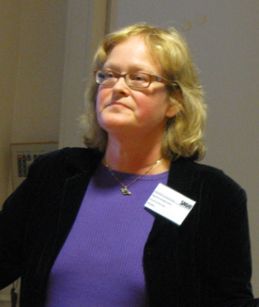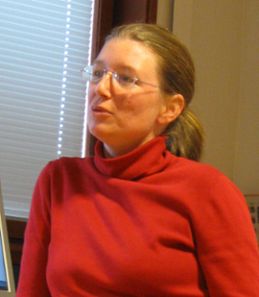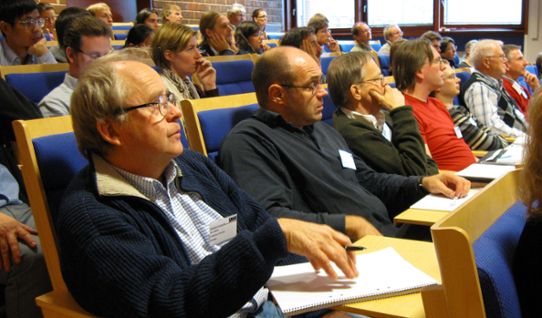
The Baltic Sea is already a sensitive ecosystem. Climate change, for example reducing salinity and increasing temperatures, can have a major impact on the food chain. Researchers into various fields from a number of countries gathered recently for a marine environment conference organised by SMHI.
Agneta Andersson, Professor of Pelagial Ecology, shed light upon the large differences in the Baltic Sea that can yield various effects in a changed climate. In the south, eutrophication is prevalent, with algal bloom and sea bottoms depleted of oxygen, while the north is nutrient-poor.
"One hypothesis is that increasing precipitation levels that cause a corresponding increase in discharge from rivers in the north are going to reduce algal growth by making sea water browner and more nutrient-poor. All in all, these changes are expected to lead to a decrease in fish production in the northern regions of the Baltic Sea", said Agneta Andersson.
The studies are conducted at Umeå University using analyses of long-term trends and various experiments, but also through the use of model calculations of climate scenarios.
Scenario calculations for cod

Anna Gårdmark, the Swedish Board of Fisheries, also took up the way in which fish, and especially cod, are affected by climate changes. Preliminary research results point out that the cod stock can decrease in a future climate, but this also depends on how much the waters are fished today and in the future.
The method of generating future scenarios from a number of various models is new in the field. In this context both models for the whole food chain and models limited to cod fish are used.
"The model sets are important for analysing and understanding uncertainties. This helps us to find robust answers that recur in as many models as possible", said Anna Gårdmark.
The marine environment conference offered many other areas of discussion, including those on physical and biogeographical calculations, studies on the reduction of marine nutrients and increased knowledge on carbon and oxygen proportions.
Ecosupport for social decisions
of the large Ecosupport research project, assembling researchers from eleven institutes from seven Baltic Sea countries. The project has combined various fields of knowledge and it aims at making existing calculation models work together.
For the first time, it makes it possible to estimate scenarios that include the whole ecosystem characterised by a high degree of geographic detail. Special studies are also going to evaluate the social costs associated with the effects of changed climate.
"The question of how a changed climate influences the whole marine ecosystem is very important for making the right social decisions, but it is also very important for future research", says Markus Meier, oceanography researcher at SMHI.
Ecosupport, which is coordinated by SMHI, is one project among the more comprehensive Baltic Sea programme, Bonus, funded by the Swedish Research Council (Formas), the Swedish National Environmental Protection Agency and the EU.
The marine environment conference "The marine ecosystem in changing climate - on the added value of coupled climate-environmental modelling for the Baltic Sea" was organised by SMHI on 16 October.
